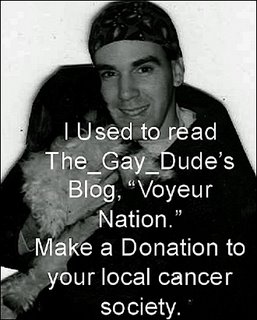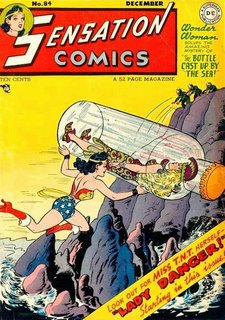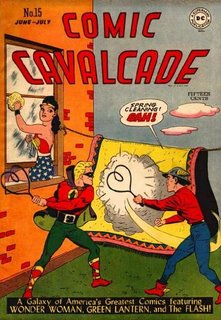 My search for a gym within reasonable distance of my abode has landed me with a trial membership at a fairly commercial organization. It’s not great. It’s not horrible. I am reserving judgement.
My search for a gym within reasonable distance of my abode has landed me with a trial membership at a fairly commercial organization. It’s not great. It’s not horrible. I am reserving judgement.As mentioned previously, my goals for the gym are modest. Basically, I am just looking to avoid ballooning up to the size of a post-blueberry-pie Violet Beauregarde. Maybe I would get into better shape if it didn’t involve giving up liquor and M&M’s.
The other day in the locker room, two men debated the relative values and drawbacks of different brands of mass building powder. “Really?” I thought, “You would rather chug one of those nasty, chalky, milkshakes with medium chain triglycerides than, say, a well made vodka Gimlet? Both have the same calories, but my Gimlet helps me forget all about the gym.” As for protein, I always point out that the peanuts in the M&M Pounder bag has lots of it. Chocolate also contains important anti-oxidants. Shoot- M&Ms should make the list of SuperFoods. Combine those things with the chemicals in TaB and I should live forever – or be dead at age 41 – whatever.
I suffer at the gym so that I can eat and drink the things that I like. Suffering eating and drinking nasty concoctions so that I can go to the gym makes no sense to me.
So, clearly I don’t take gyms all that serious. Just staying marginally fuckable is my main goal.
Regardless, no matter the gym, I have noticed some minor, but annoying, things that seem universal. Being a helpful lad, I want to offer some suggestions to my fellow gym patrons. We all have to live together, so let’s aspire to make it pleasant, shall we?
*** Take a shower before you arrive at the gym. Yes, I understand that two showers in one day can be a hassle. See, though, if odor emanates from you before you even break a sweat, just imagine what you are going to be like half-way through your workout. Don’t take a holiday from hygiene.
*** Speaking of showering (which I just can’t encourage enough), if you lose a band-aide while in a gym shower-stall, please remove it upon exiting. I am not inclined to step into the shower room and see your nasty, germ-riddled, puss-soaked adhesive swimming around near the drain. That’s just nasty, people.
*** While we are hanging in the locker room, nobody likes somebody riddled with paranoia. If you are keeping your towel around your waist while you put on your underwear, you just show both your homophobia and poor self-image. Junior High is over. Plus, you are making it really hard for me to ogle and/or silently judge you.
*** Sometimes when lifting heavy weights, one has an involuntary grunt. I understand. That’s cool. If, however, you sound like you are recording the audio dub for the Falcon video Bootstrap, tone it down a bit. Nobody wants to hear that much noise from your mouth – unless you are willing to reenact scenes from that Falcon video. Then we can talk.
*** Look around the gym a bit. What do you see? Signs above you that say “Don’t Use the Treadmills to Stretch.” What’s in front of you on the treadmill? Oh, look, it’s a smaller sign that says, “Don’t Use the Treadmills to Stretch.” Hmm – What could be the hidden message? Oh, right: If you are not actually using the treadmill, get the fuck off and let somebody else onto it. Those nifty stretching mats will, I promise, accomplish your goals (This was a much bigger issue in my former Texas gym, but still...)
*** Are you currently bench-pressing 300 pounds? No? Then you don’t need to use chalk. It gets everywhere. Plus, nobody wants to see your sweaty little hand prints preserved all over the equipment. Keep the chalk where it belongs: classrooms and crime scenes. Or I guess that you could crush it up into milk and call it a Mass Builder Shake.
*** I like meeting new people. Really – I do. Feel free to chat me up at the gym – Unless you want to offer me advice about my workout. If that’s all you want to talk about, just walk away.
*** When it comes to cleaning, I can be a bit obsessive. Yet, even I don’t wipe down all the machines/benches every single time I use them. If, however, you get up and find that you left behind a greasy body-print, take the time to clean it up. We aren’t interested in you trying to create your own Shroud of Turin on the weight bench.
*** If you weigh 250 pounds and struggle to walk two miles per hour on the treadmill, I applaud you for getting out and trying to change your life. That’s great! Keep on keeping on! Soon that weight will fall right off. If, however, you weigh 110 pounds and walk two miles per hour on the treadmill because you are chatting on your cell phone, get out of the gym. You could burn more energy just walking around the parking lot. In the gym, you are just in the way. Yes, access to treadmills is clearly a major issue with me
*** If you are a young, muscular guy, why do you feel the need to wear a shirt in the gym? Take it off – Take it all off. Don’t be so confined. Loosen up a bit. Can I fix you a Gimlet?


























